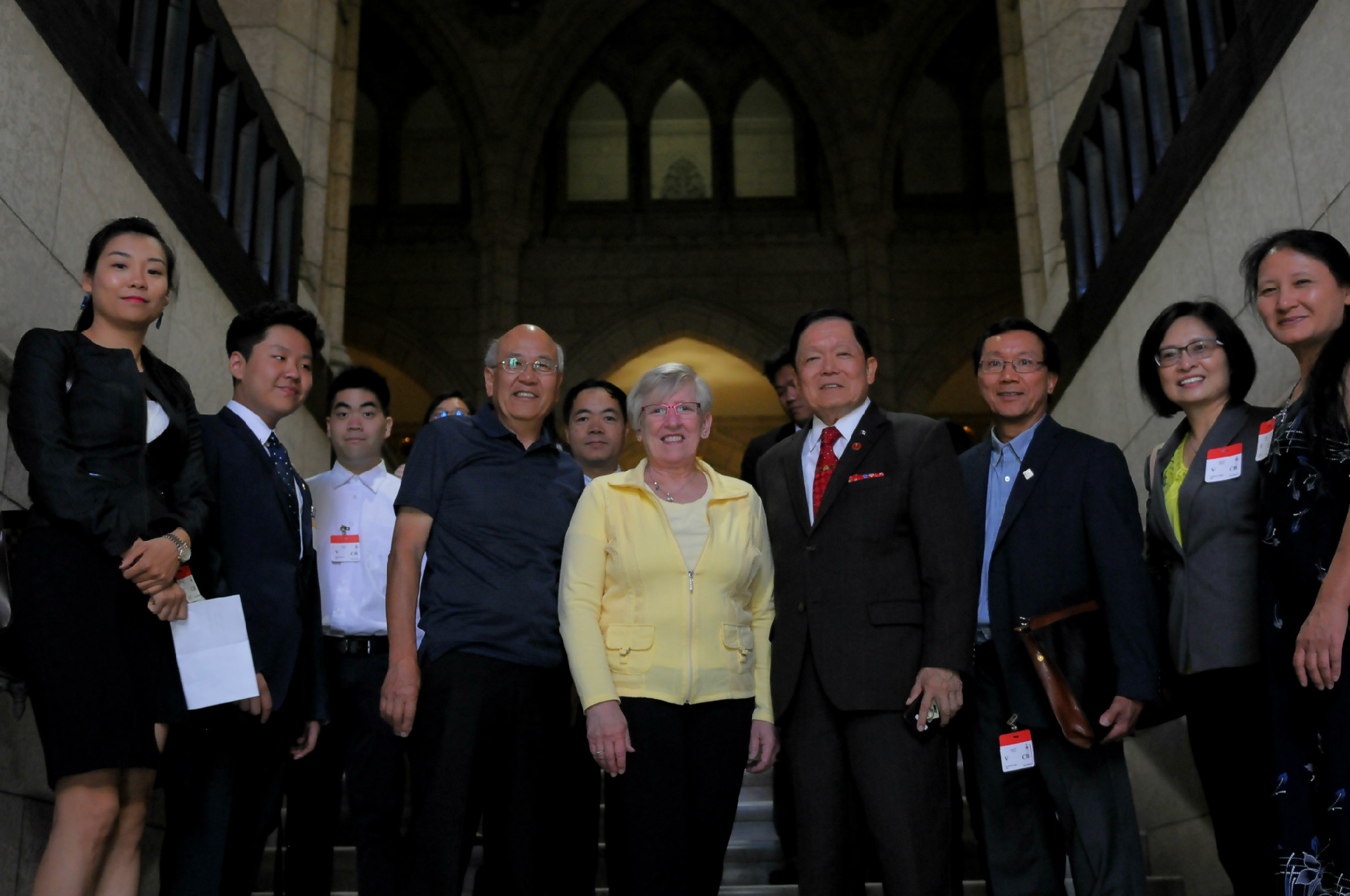Ten years since Canada apologizes for the Chinese Head Tax: Senator Oh

Tags
Today, we pay tribute to the Tenth Anniversary of the Government's Apology for the Chinese Head Tax and Exclusion Act, one of the darker moments in Canada's history. Let me take a minute to remind those who are not familiar with this period.
Due to a shortage of workers, thousands of Chinese men were brought to Canada in the 1880s. Their job was to help build the western section of the Canadian Pacific Railway, helping to connect our nation and Canadians from east to west.
Chinese labour was inexpensive and easily exploitable. In addition to long hours, Chinese crews were paid considerably less than other workers. They were also assigned to the most difficult and dangerous jobs. Hundreds were injured or died.
When the railway completed, the demand for foreign labour decreased. Shortly after, a period of legislated racism against Chinese migrants began.
In 1885, the federal government imposed a head tax of $50 for any Chinese person entering Canada. The head tax aimed to restrict Chinese immigration altogether by making it difficult for individuals and families to come to Canada. As anti-Chinese sentiment grew, the head tax was raised to $500 in 1903.
In 1923, the federal government replaced the head tax with the Chinese Immigration Act, also known as the Chinese Exclusion Act. This act virtually prohibited anyone from China legally entering the country.
While many Chinese immigrants returned to China, those who stayed in Canada were made to feel unwelcome.
Despite serving in the Second World War and numerous petitions against the unjust act, it was not until 1947 that the federal government repealed the Chinese Immigration Act. However, the restrictions on Chinese immigration to Canada were not removed. In fact, that same year, in a speech to Parliament, Prime Minister Mackenzie King stated:
. . . Canada is perfectly within her rights in selecting the persons whom we regard as desirable future citizens. . . . Large-scale migration from the Orient would change the fundamental composition of the Canadian population.
These words reflected the widespread acceptance of discrimination against Chinese immigrants in Canada.
On June 22, 2006, the Government of Canada issued a full apology to Chinese Canadians for the head tax and Exclusion Act. This was an important step towards reconciliation that enabled our community to move forward as full and equal members of Canadian society.
Fellow colleagues, we are here to look out for the best interests of Canadians, especially those whose interests may be compromised or unrepresented. I encourage you to take the time to learn more about the history and contributions made by Chinese Canadians and immigrants to our great country.
The Honourable Senator Victor Oh retired from the Senate of Canada in June 2024. Visit the Library of Parliament's Parlinfo website to learn more about his work in Parliament.
Today, we pay tribute to the Tenth Anniversary of the Government's Apology for the Chinese Head Tax and Exclusion Act, one of the darker moments in Canada's history. Let me take a minute to remind those who are not familiar with this period.
Due to a shortage of workers, thousands of Chinese men were brought to Canada in the 1880s. Their job was to help build the western section of the Canadian Pacific Railway, helping to connect our nation and Canadians from east to west.
Chinese labour was inexpensive and easily exploitable. In addition to long hours, Chinese crews were paid considerably less than other workers. They were also assigned to the most difficult and dangerous jobs. Hundreds were injured or died.
When the railway completed, the demand for foreign labour decreased. Shortly after, a period of legislated racism against Chinese migrants began.
In 1885, the federal government imposed a head tax of $50 for any Chinese person entering Canada. The head tax aimed to restrict Chinese immigration altogether by making it difficult for individuals and families to come to Canada. As anti-Chinese sentiment grew, the head tax was raised to $500 in 1903.
In 1923, the federal government replaced the head tax with the Chinese Immigration Act, also known as the Chinese Exclusion Act. This act virtually prohibited anyone from China legally entering the country.
While many Chinese immigrants returned to China, those who stayed in Canada were made to feel unwelcome.
Despite serving in the Second World War and numerous petitions against the unjust act, it was not until 1947 that the federal government repealed the Chinese Immigration Act. However, the restrictions on Chinese immigration to Canada were not removed. In fact, that same year, in a speech to Parliament, Prime Minister Mackenzie King stated:
. . . Canada is perfectly within her rights in selecting the persons whom we regard as desirable future citizens. . . . Large-scale migration from the Orient would change the fundamental composition of the Canadian population.
These words reflected the widespread acceptance of discrimination against Chinese immigrants in Canada.
On June 22, 2006, the Government of Canada issued a full apology to Chinese Canadians for the head tax and Exclusion Act. This was an important step towards reconciliation that enabled our community to move forward as full and equal members of Canadian society.
Fellow colleagues, we are here to look out for the best interests of Canadians, especially those whose interests may be compromised or unrepresented. I encourage you to take the time to learn more about the history and contributions made by Chinese Canadians and immigrants to our great country.
The Honourable Senator Victor Oh retired from the Senate of Canada in June 2024. Visit the Library of Parliament's Parlinfo website to learn more about his work in Parliament.


